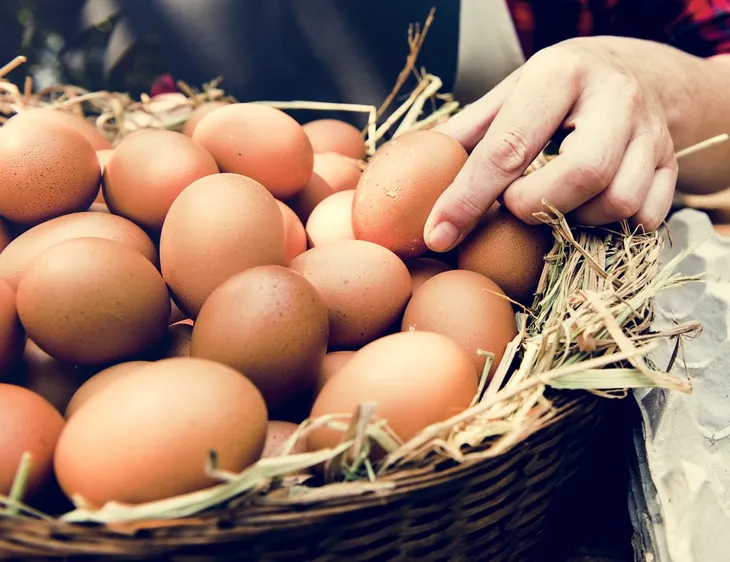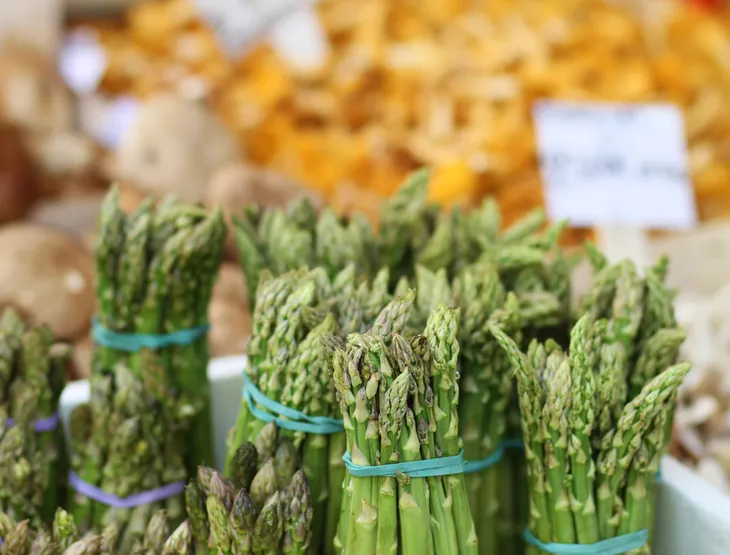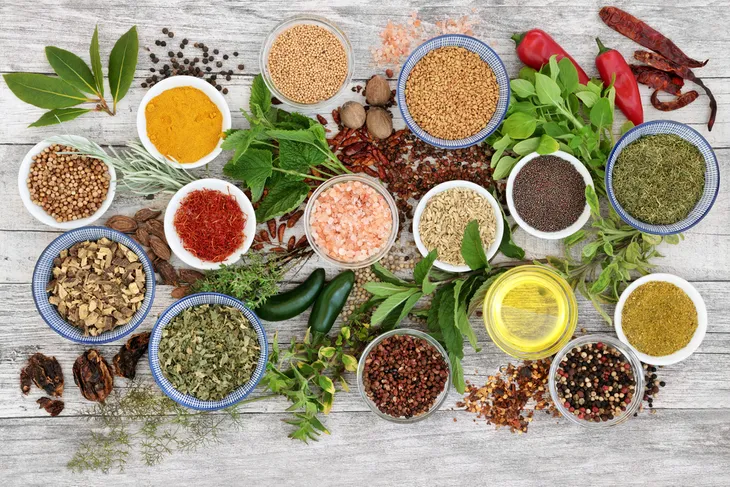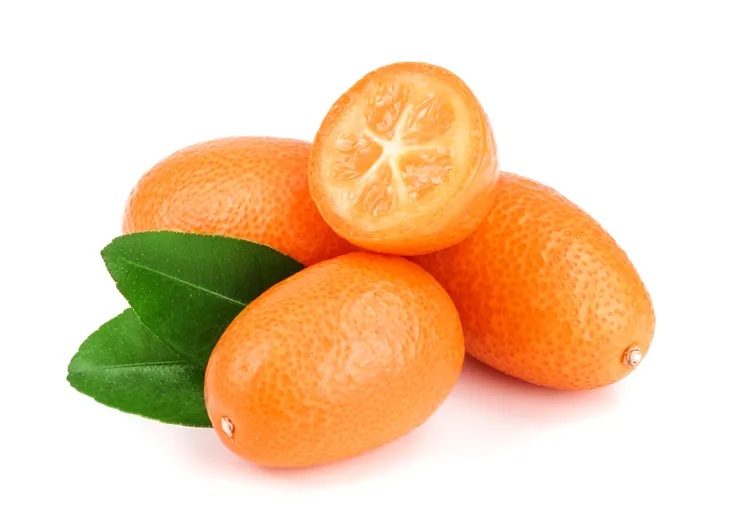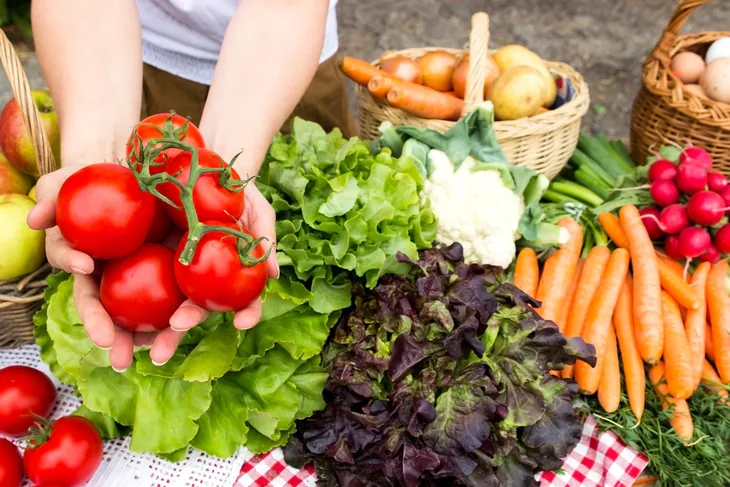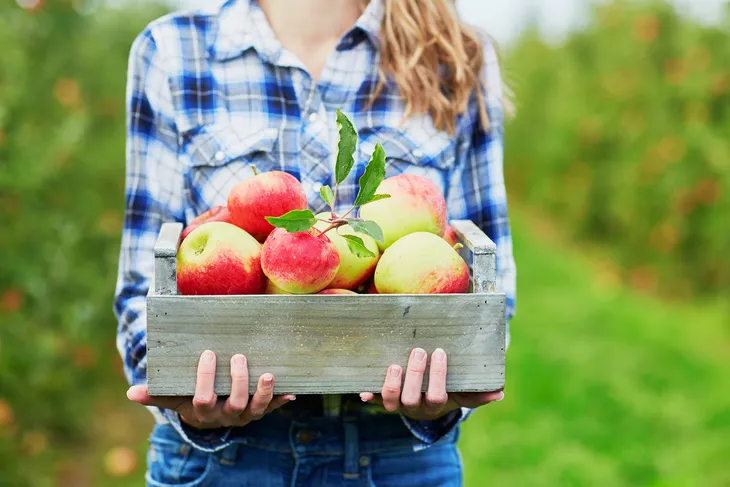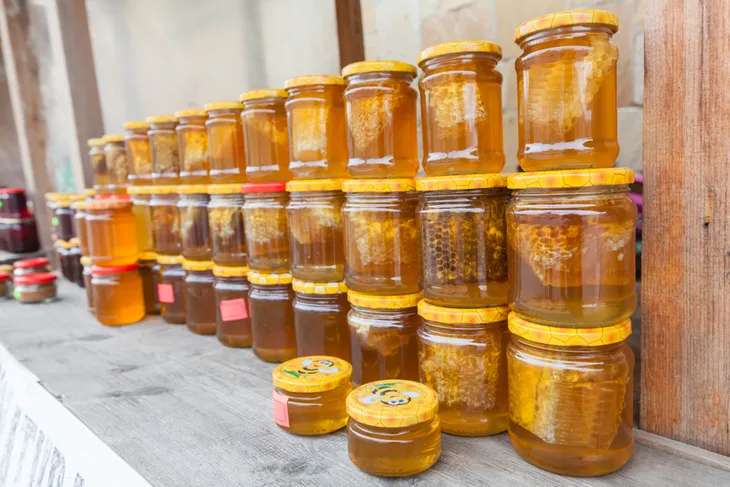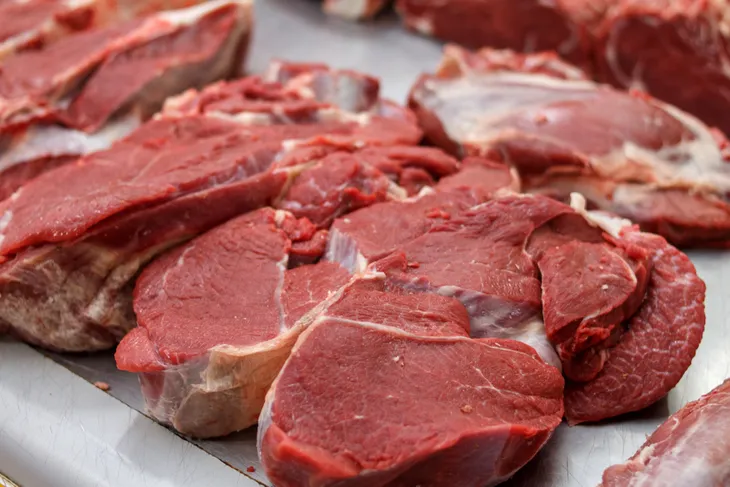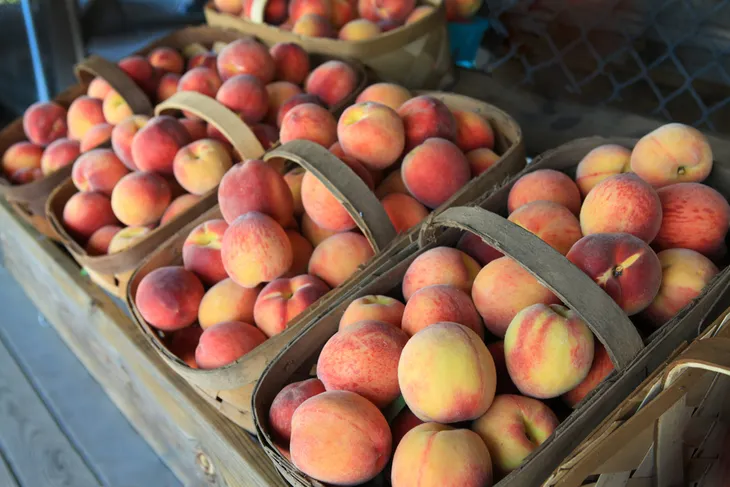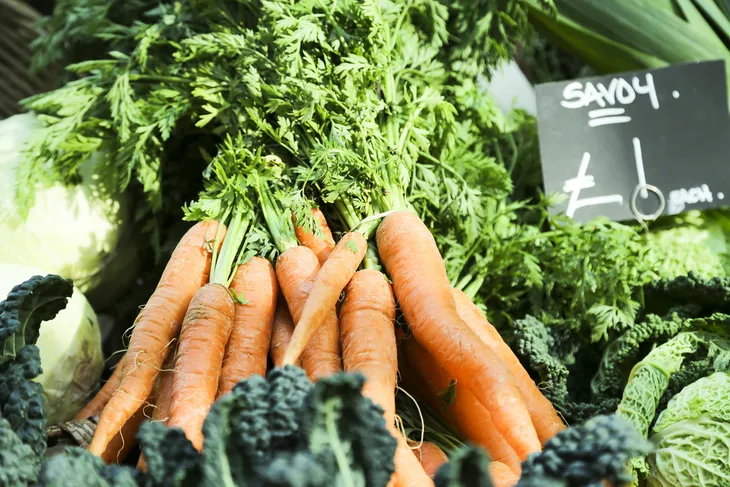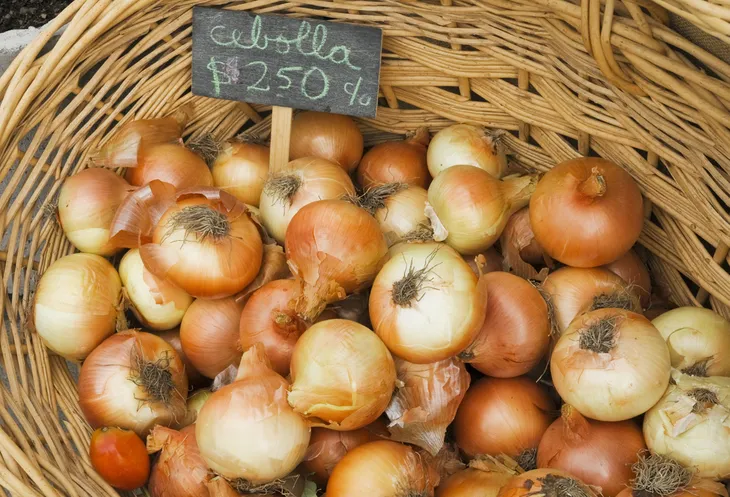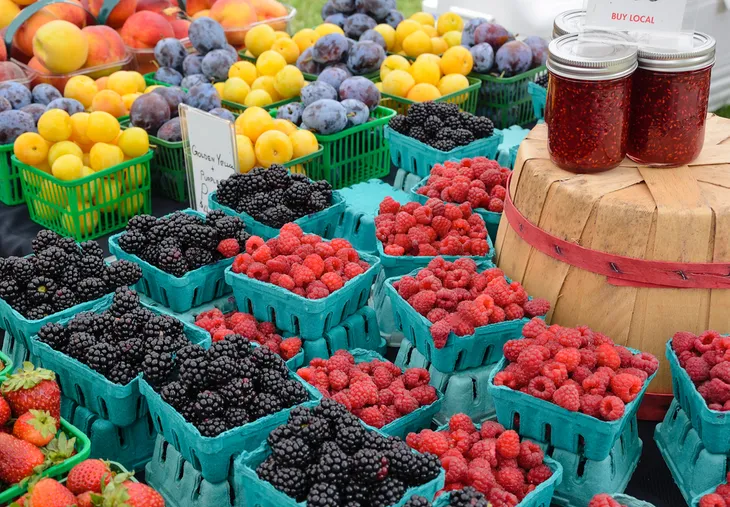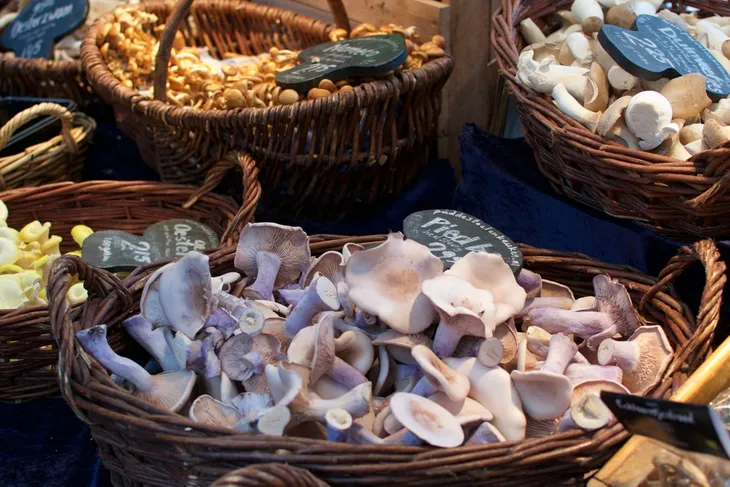People are always touting the benefits of buying fresh food – and it’s really hard to beat food that is sold directly from a farm, without a middleman. As CookingLight.com notes, shopping at local farmers’ markets is good for the local economy, as well as your health. However, there are some foods in particular you should consider buying at farmers’ markets rather than grocery stores, and the reasons may surprise you.
Let’s take a look at 13 popular menu items you should make the switch for…
Eggs
CookingLight.com says eggs direct from the egg farmer can’t be beat by grocery store versions, even though they’re usually more expensive than what you’d find in stores. That’s because the eggs at farmers’ markets are typically from smaller farms “where eggs are truly free range,” it adds.
The advantage to this is that you’ll likely get more vitamins D, A, and E, as well as more omega-3 fatty acids in farm fresh eggs, and you might also get less saturated fats than store-bought eggs, it notes.
Asparagus
Prevention notes that while asparagus is a dinner plate favorite, more than half of the product available in the U.S. is imported from Peru – in fact, it is Peru’s biggest agricultural export, adds the source.
The problem is that the United States Department of Agriculture has a requirement that all imports of fresh asparagus from Peru to be treated with the “dangerous pesticide” called methyl bromide, which is a suspected cancer-causing agent. The chemical also shortens the shelf life of the vegetable, meaning it probably also won’t taste as good as the farmers’ market product, says the source.
Spices and Herbs
This one might be a bit surprising – there are so many varieties of pre-bottled and packaged spices at the ready in the supermarket to choose from. However, EatThis.com says even spices are something you should strongly consider only buying direct from farmers.
The main argument is that the spices you get from farmers’ markets will be fresher, and while you’ll be able to buy all the spice staples (sage, thyme, chili peppers, cinnamon) you might find some that you won’t in traditional stores. “Depending on your location, you can get some hard-to-find ethnic spices to go with your international cuisine,” it adds.
Kumquats
You might have never had one of these delicious little citrus fruits, but they make a great and nutritious snack. In fact, according to Prevention, these little beauties have three times the fiber, twice the calcium, and one and a half times more vitamin C than a tangerine.
These fruits can also be used as an ingredient in cooking, it adds. The general point is that the fruits and vegetables you find at farmers’ markets will be fresh, and kumquats are not something you’ll find in every store.
Tomatoes
EatThis.com says that tomatoes bought in supermarkets “aren’t even in the same league” as tomatoes raised on farms. The kind that are “ripe, right-off-the-vine” including Roma, beefsteak and grape varieties make a tasty treat or a healthy side to protein.
(Fresh) tomatoes are also high in vitamin C and lycopene, which are both essential to normal bodily function, these days. Other sources note that farmer fresh tomatoes generally taste better, and are not treated with chemical processes to appear riper.
Apples
We all know that apple picking at an orchard is a fun family outing, and that you can’t really beat freshness straight from the tree. However, not all of us have time to pick our own fruit, but buying directly from a farmers’ market is a close second.
Cooking Light notes that apples are sometimes kept in old storage for up to a year, meaning the product you’re buying at the grocery store might be months old – and less nutritious as a result. Buy apples from farmers’ markets during peak seasons (fall and early winter) for best results, it suggests.
Honey
What’s all the buzz about fresh honey at farmers’ markets about? Eat This says that locally-made honey is both fresh and delicious – “and many beekeepers now combine their honey with dozens of different flavors, giving your taste buds a delicious treat,” it adds.
Look for jars that have homemade labels on them, or better yet, ask the farmer where the honey comes from. Apparently some vendors at these markets still try to slip store-bought honey past customers, so beware, it warns.
Beef
You may have a good butcher section at your local supermarket, but you should still consider getting your meat from a farmers’ market, says Prevention. This is because animals that have been raised eating grass produce 8-percent fewer greenhouse gas emissions (and 30-percent less ammonia) than animals fed corn in confinement, it explains.
The source says you might see the term “grass fed” in stores, but that the term isn’t always reliable. Buying from a small vendor lets you ask direct questions about how the animals were raised, it says. Apparently grass-fed beef is also higher in nutritional value and lower in fat than some store-bought products.
Peaches
Prevention says straight up that peaches don’t hold up well during transport, which is a good reason to pick some up from a local farmers’ market – and the best time to buy tasty peaches is during midsummer, which is peak peach season, it adds.
The source also notes that pesticides can be applied to store bought versions, and even local versions. In fact, it cites the Environmental Working Group’s Shopper’s Guide to Produce in its claim that peaches are subjected to pesticides more than any other fruit. “Buying local means you can grill the farmer to see which chemicals, if any, he or she uses,” it notes.
Carrots
EatThis.com says that you might think carrots only come in one color – orange. However, buying them directly from farmers’ markets will likely present a variety of “rainbow-colored carrots” that you won’t always find in grocery stores.
It’s more than just about the fun colors, although presenting a colorful carrot to your kids may make them more likely to try it. The source says other colors of carrots – purple carrots in particular – are richer in beta-carotene and other antioxidants than the traditional orange ones.
Onions
Apparently buying onions directly from the grower can prevent their operations from buying the farm. Prevention.com explains that the U.S. has loosened trade restrictions with Peru, “and the result has been a glut of imported onions that has dropped the price local farmers can get for their crops by half.”
This also means local output has been lower, which is understandable under the circumstances. The source also says that a pesticide (called methamidophos) used on these imported onion crops has been linked with sperm damage in farmers that have been exposed to it.
Berries
It’s hard to go into any supermarket without saying a wide assortment of berries of every shape and color. However, most of these berries are from far-off places like South America, Mexico, and Canada, and sometimes even from overseas, says Prevention.
Berries generally don’t have a long shelf life, so that means they’re brought in via air freight, “the most fossil-fuel-guzzling form of food shipment,” adds the source. Buying local strawberries, for example, means you’re adding to the $1.5-million in sales of domestic berries compared to the $220-million worth of imported strawberries.
Mushrooms
Cooking Light says some farmers’ markets are blessed with “mushroom foragers,” which means you’ll get a nice range of choices that are native to the area.
The people that pick mushrooms in the wild are usually passionate about their products, adds the source. “These guys are serious about their mushrooms and will be able to give you a wealth of information about the qualities of the ‘shrooms,” it notes. That means they can also tell you more about the flavor and nutritional profile of a particular mushroom than a grocery store package, it adds.

